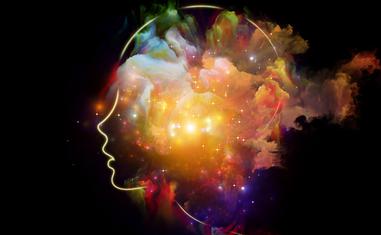The views expressed in our content reflect individual perspectives and do not represent the authoritative views of the Baha'i Faith.
When you ponder the role of religion, what immediately comes to mind? Do you think dogma, ritual, or rules? According to the Baha’i teachings, that’s not religion at all – instead, religion is learning.
In his writings, Abdu’l-Baha put it this way:
There are certain pillars which have been established as the unshakeable supports of the Faith of God.
The mightiest of these is learning and the use of the mind, the expansion of consciousness, and insight into the realities of the universe and the hidden mysteries of Almighty God.
Does this important Baha’i principle mean that we could consider scientific expeditions like the James Webb Space Telescope “religious?” After all, that entire project gives us “insight into the realities of the universe,” right?
Or does this principle mean that expanding our consciousness – encountering, investigating, and fairly considering other ideas, concepts, and cultures – can constitute a religious act?
Or does this principle mean that educating yourself, which involves “learning and the use of the mind,” means you’ve embarked on a spiritual and religious journey?
Yes, the Baha’i teachings say, to each of those questions.
RELATED: In Our Fine-Tuned Universe, Does Life Exist on Other Planets?
Baha’is prize education, and not just formal schooling, either. All people educate themselves when they consistently seek knowledge. We can find it everywhere – reading, going to school, exploring nature, participating in community activism, in meditation or prayer, working for peace, justice, and unity – or even surfing the web.
From a Baha’i perspective, these kinds of educational activities help everyone feed our minds, enlarge our consciousness, and grant us increasing levels of perceptive insight into the mysteries, verities, and realities of life. Let’s examine each one of those three “mighty pillars” and see what they involve.
1. Learning and the Use of the Mind
Normally, at least in Western society, we tend to primarily equate learning with a formal education – a college degree, a post-graduate degree, a doctoral degree. Our technocratic culture prizes expertise, and elevates various hyper-specialized “experts” to high policy-making positions in governance and academia. But the Baha’i teachings offer a much broader definition of learning, one that also includes a wide, comprehensive knowledge of philosophy, religion, history, law, and the customs of other cultures.
Writing about this subject in The Secret of Divine Civilization in 1875 – a book specifically addressed to the nation and population of Persia at the time – Abdu’l-Baha summarized the subject matter areas necessary for acquiring true learning and maximizing the use of the mind:
The first attribute of perfection is learning and the cultural attainments of the mind, and this eminent station is achieved when the individual combines in himself a thorough knowledge of those complex and transcendental realities pertaining to God, of the fundamental truths of Qur’anic political and religious law, of the contents of the sacred Scriptures of other faiths, and of those regulations and procedures which would contribute to the progress and civilization of this distinguished country. He should in addition be informed as to the laws and principles, the customs, conditions and manners, and the material and moral virtues characterizing the statecraft of other nations, and should be well versed in all the useful branches of learning of the day, and study the historical records of bygone governments and peoples.
This sort of liberal education, which emphasizes an expansive, cosmopolitan, and progressive knowledge base that goes far beyond the confines of any single society and its customs, can truly turn an enthusiastic seeker of learning into a global citizen. It encourages us to transcend our cultural conditioning and become more accepting, understanding, and universal. This iconic Baha’i principle, the writings of Baha’u’llah say, is one of the primary goals of every Baha’i:
Blessed and happy is he that ariseth to promote the best interests of the peoples and kindreds of the earth. … It is not for him to pride himself who loveth his own country, but rather for him who loveth the whole world. The earth is but one country, and mankind its citizens.
2. The Expansion of Consciousness
Human beings have unique powers and perceptions that no other creature possesses – and the Baha’i teachings refer to those qualities and abilities by using the term “consciousness.” In a speech he gave to the Theosophical Society in Boston in 1912, Abdu’l-Baha pointed out that we humans are conscious beings because we have the power to discover the inner realities of things:
Man is possessed of the emanations of consciousness; he has perception, ideality and is capable of discovering the mysteries of the universe. All the industries, inventions and facilities surrounding our daily life were at one time hidden secrets of nature, but the reality of man penetrated them and made them subject to his purposes. According to nature’s laws they should have remained latent and hidden; but man, having transcended those laws, discovered these mysteries and brought them out of the plane of the invisible into the realm of the known and visible. How wonderful is the spirit of man!
The Baha’i teachings ask us to continually expand our consciousness – to develop a deeper way of seeing life, one that begins to encounter and recognize its spiritual truths. In the same speech, Abdu’l-Baha said that this expansion of consciousness happens when we empower our spiritual attributes:
Man transcends nature, while the mineral, vegetable and animal are helplessly subject to it. This can be done only through the power of the spirit, because the spirit is the reality.
RELATED: How Big is the Universe? The JWST Aims to Find Out
3. Insight into the Realities of the Universe and the Hidden Mysteries of Almighty God
Baha’u’llah taught and wrote extensively about the “hidden mysteries” a spiritual seeker can potentially discover. In this lyrical passage from his Book of Certitude, Baha’u’llah asked us to involve not only our minds but our emotions, our hearts, and our souls in our search for life’s true meaning. He counseled searching for those hidden mysteries with “earnest striving,” “longing desire,” and “rapture and ecstasy:”
Only when the lamp of search, of earnest striving, of longing desire, of passionate devotion, of fervid love, of rapture, and ecstasy, is kindled within the seeker’s heart, and the breeze of His loving-kindness is wafted upon his soul, will the darkness of error be dispelled, the mists of doubts and misgivings be dissipated, and the lights of knowledge and certitude envelop his being. At that hour will the Mystic Herald, bearing the joyful tidings of the Spirit, shine forth from the City of God resplendent as the morn, and, through the trumpet-blast of knowledge, will awaken the heart, the soul, and the spirit from the slumber of heedlessness. Then will the manifold favors and outpouring grace of the holy and everlasting Spirit confer such new life upon the seeker that he will find himself endowed with a new eye, a new ear, a new heart, and a new mind. He will contemplate the manifest signs of the universe, and will penetrate the hidden mysteries of the soul.
First comes learning, the Baha’i teachings say. We must learn to use our minds, our rational, reasoning faculties. Then the expansion of consciousness gradually occurs – as we learn, our consciousness grows and our souls enlarge their capacities. Then, finally, insight follows, along with the joyous realization that our inner beings are meant to unearth the hidden mysteries in ourselves and in the universe.

















Comments
Sign in or create an account
Continue with Facebookor